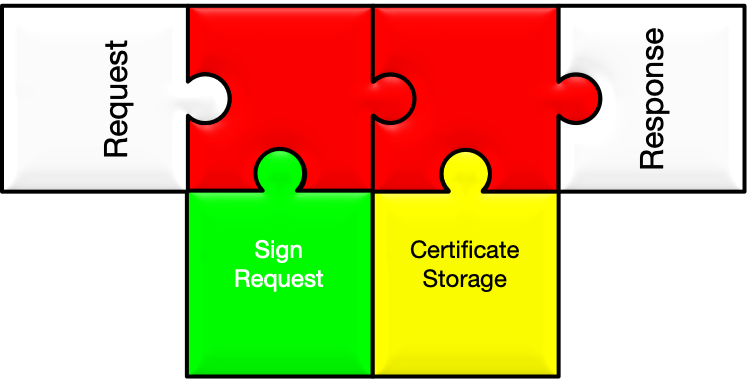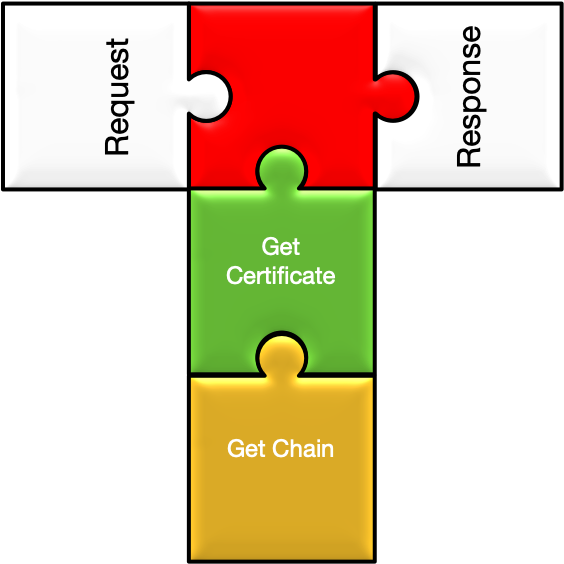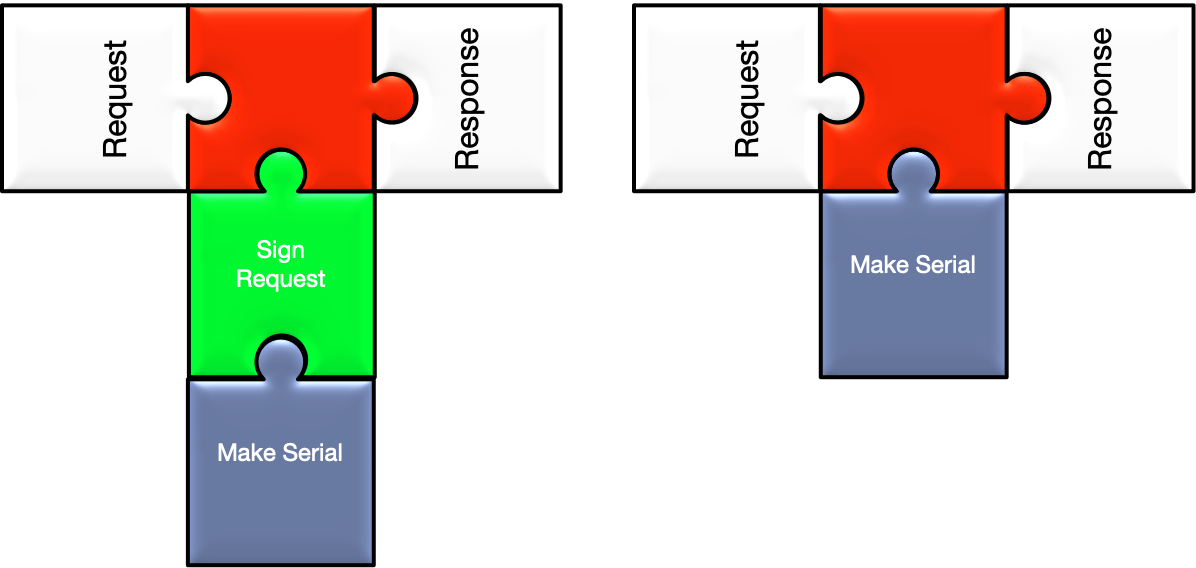Based on the configuration of paths and files, this module allows certificate sign requests to be saved to disk for later processing, and certificates to be returned from disk to clients that ask for them.
In addition, an OpenSSL compatible serial file and index database can be used to generate serial numbers for certificates and stored for later access in an index database.
This module allows a typical disk based OpenSSL certificate authority to become accessible over the web.




 Saves the certificate revocation list to a directory
on disk for later processing.
Saves the certificate revocation list to a directory
on disk for later processing. Saves the newly generated certificate to a directory.
Saves the newly generated certificate to a directory.
 Returns the certificate from a directory on disk written during earlier
processing.
Returns the certificate from a directory on disk written during earlier
processing.
 Returns the next serial number from the contents of a file on disk.
Returns the next serial number from the contents of a file on disk.